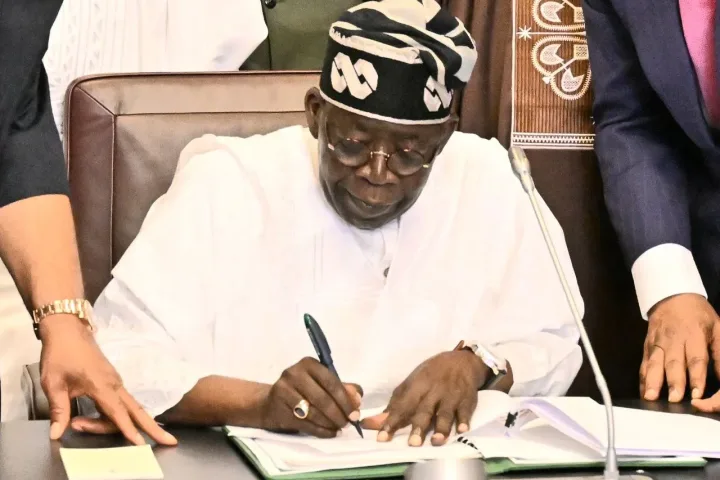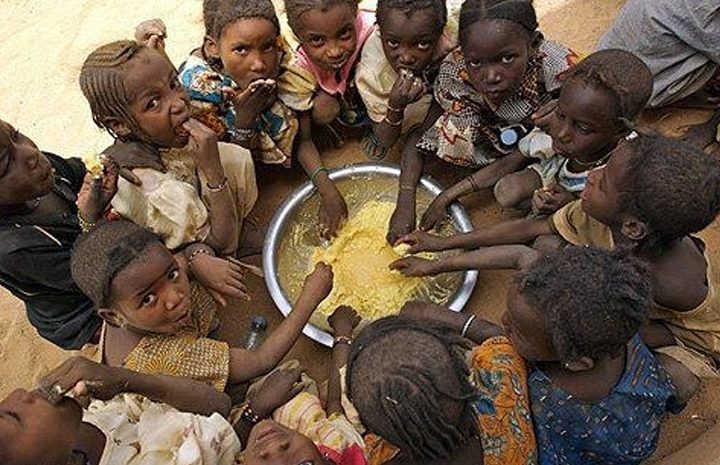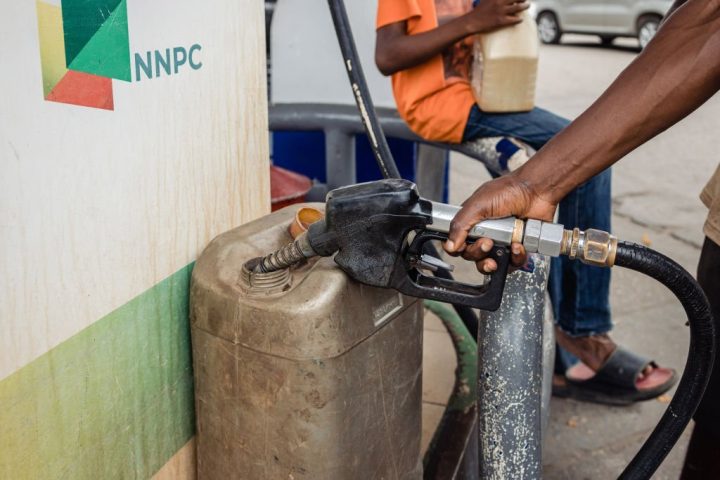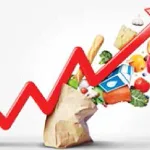The surging inflation rate in Nigeria has been a source of worry to stakeholders given the impact on the economy and the citizens who bear the brunt of skyrocketing costs of things.
The National Bureau of Statistics on Wednesday released its report on inflation rate for the month of October which indicated that it has hit 27.33 per cent against 26.72 percent headline inflation rate in September (an increase of 0.61 percent points).
Join our WhatsApp ChannelThis is coming very close to the recent KPMG prediction that Nigeria’s headline inflation rate would reach 30 per cent by December 2023.
This worries stakeholders, who expressed concern as the same NBS report revealed that food inflation rose to 31.5 per cent. According to Our World in Data, an online platform that publishes research data on global issues, Nigeria is on the top chart of countries with the highest food expenditure as the share of the citizens’ total personal income that goes into food was estimated at 60 per cent.
In the midst of this worrisome trend, experts have said that the government needs to take sustainable measures to tackle the problem such as high energy costs, foreign exchange crisis low production including agricultural and industrial products among others.
READ ALSO: Why Nigeria Struggles To Stop Inflation – Dev. Bank of Nigeria Executive
Founder/CEO of the Centre for Promotion of Private Enterprise (CPPE), Dr Muda Yusuf, admitted that the latest inflation indices were a reflection of the recent reforms undertaken by the Nigerian government such as fuel subsidy removal and foreign exchange reforms. He argued that the reforms were inevitable because of the legacy of weak economic fundamentals that the current administration inherited.
“I think the bigger issue is how the administration is responding to the issue of inflation because the key drivers as we speak are the issues of foreign exchange (naira depreciation in the face of foreign currencies), high cost of energy. Those are the two major issues,” Dr Yusuf stated while featuring on Channels Television Sunrise Daily on Thursday.
Recall that at the inception of the current administration in May ending, President Bola Tinubu announced end of subsidies on petrol which led to over 300 percent increase with pump prices currently in the range of N617 to as high as N670 depending on the location.
The government also embarked on foreign exchange reforms with the floating of the naira in the forex market (allowing the value of the currency to be determined by market forces). This, however, saw the value of the naira dropping further against major foreign currencies. As of Wednesday, November 15, the naira exchanged N1,138 for $1 in the parallel market and N844/$1 in the official market.
Yusuf also pointed out that there is a global dimension to the inflation issue. “Of course, globally, inflation is a big issue and to that extent, whatever we import also comes with a kind of inflation which we call imported inflation.”
He also noted that insecurity is another cause of inflation because it affects the supply of food (including denying farmers access to farms and transportation of farm products).
On the foreign exchange crisis, for the supply side, while observing that there are no quick fixes, the CPPE CEO stated that it can be managed by the supply of Forex either through diaspora remittances or by seeking foreign direct investment. On the demand side, he stated that urgent steps need to be taken to resume domestic refining of petroleum because the quest to import refined products puts a lot of pressure on the foreign exchange as well.
On the biting food inflation, the economic expert emphasised the need to scale up agricultural production by investing substantially in modern technology to produce enough for domestic needs.
According to the Gross Domestic Product (GDP) report released by the National Bureau of Statistics for the second quarter of 2023, the agricultural sector grew by 1.50 per cent, an improvement from the growth of 1.20 per cent recorded in the second quarter of 2022. The report, however, indicated that in terms of share to the GDP, it, together with the industrial sector, contributed less. Agriculture contributed 21.07 per cent to nominal GDP in the second quarter of 2023.
Yusuf said the biggest challenges for private sector operators in the country are energy costs and foreign exchange crisis, and unfortunately, the factors driving them are not domestic and can’t be controlled within the country.
He noted that the only issue that is domestic is the failure to produce refined petroleum products locally because refineries are not working. He stressed the need for the government to ramp up efforts to begin local refining of petroleum products to stop dependence on imports.
Speaking further on energy costs, he reiterated the need to scale up power generation in the country so that businesses would not continue to rely so much on use of fossil fuels to power their generating sets as they come with prohibitive costs given the high price of petrol and diesel currently.
He noted that no nation in the world has industrialised without a stable power supply. “If we have a more stable power supply, the demands for these things would be less and the pressure on the citizens and businesses will also be less.”
He further suggested that there should be a model for financing infrastructure such as roads in the country, other than only what is provided in the budget.
Given the current economic situation, the CPPE CEO called on the authorities to also consider reviewing import duties which also contribute to the cost of things imported – both finished products and raw materials for industries.
Prime Business Africa understands that the depreciation of the naira has led to adjustments in exchange rates resulting in high import tariffs paid during clearing of cargoes. This development is said to force many importers to cut down on the quantity of raw material they import, coupled with the cost implication on the finished goods at the long run. In the last six months, Customs has adjusted the exchange rate for calculating import duties at least twice, from N422.3/$ to N770.88/$ in July, and then to N783.174/$. The Nigerian Ports Authority reportedly disclosed that over 7,000 containers are currently abandoned at the ports, even as industry analysts believe that the number will increase due to the high import duties.
Yusuf maintained that this is not the best time to increase import duties because of the implication on the cost of things in the country.
The monetary and fiscal authorities in the country have, according to the Managing Director, Afrinvest West Africa Limited, Ike Chioke, been focused mainly on control of money supply and selective tax reliefs in tackling the surging inflation rate.
Like Dr Yusuf, Chioke in a recent media interview stated that an effective strategy to tame the high inflation rate is to address “structural bottlenecks (such as insecurity and infrastructural gaps), improve ease of doing business, and incentivize large-scale local production of agriculture and manufactured goods alongside effective liquidity management and proper anchoring of market yields to the Monetary Policy Rate (MPR).”
He warned that “failure to stem the surging inflation tide in the near term would result in a contagion financial sector crisis and by extension, derail other segments of the economy from the growth path.”
Victor Ezeja is a passionate journalist with six years of experience writing on economy, politics and energy. He holds a Masters degree in Mass Communication.



















Follow Us